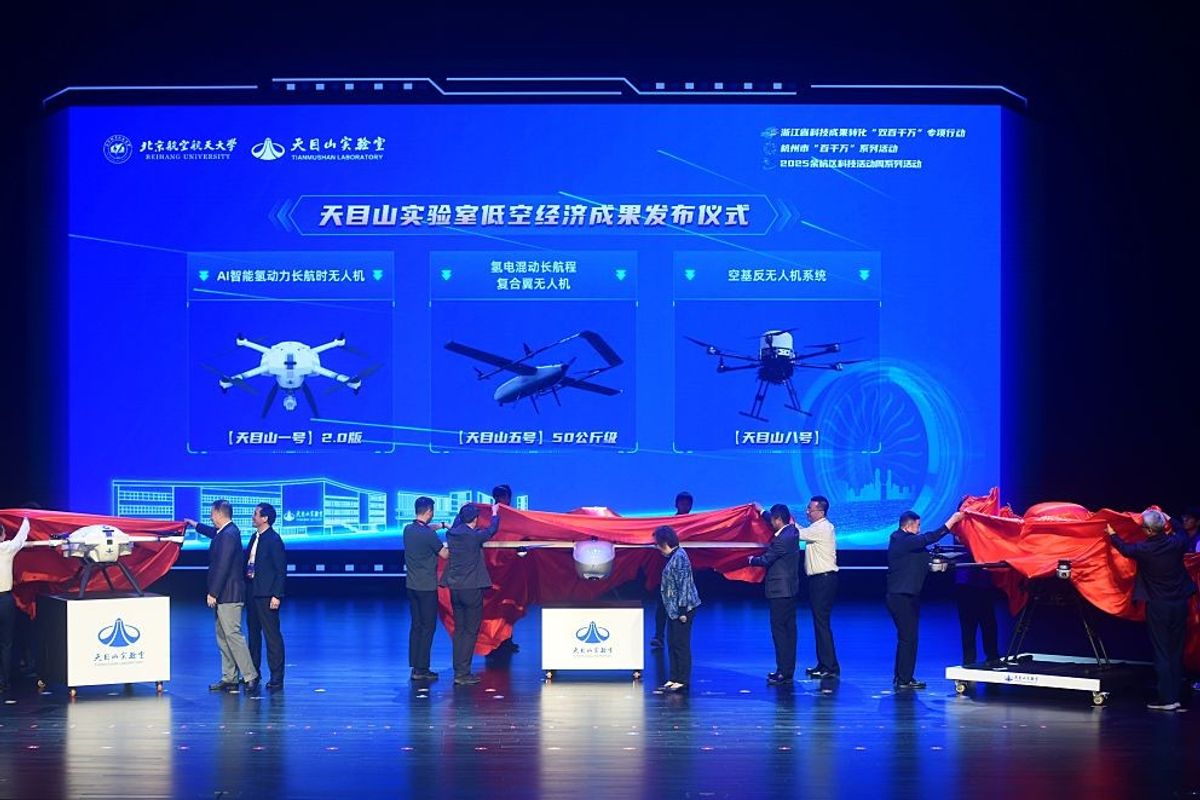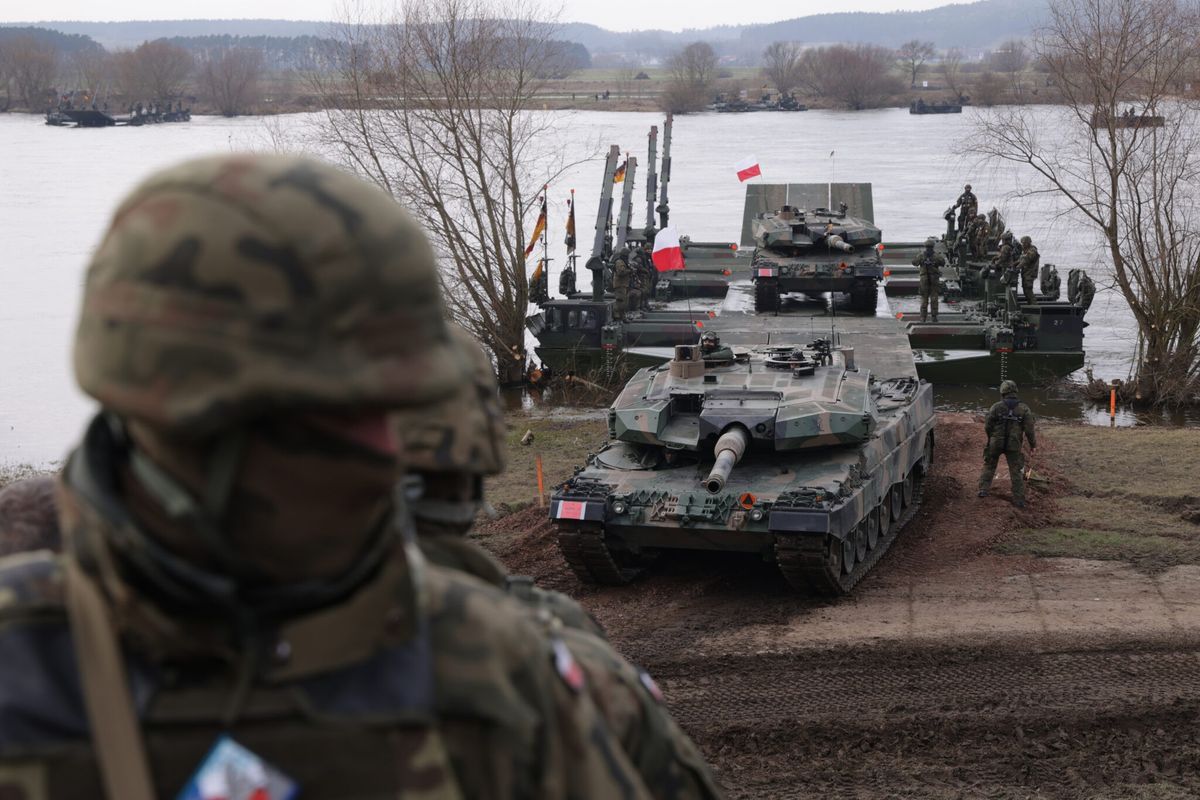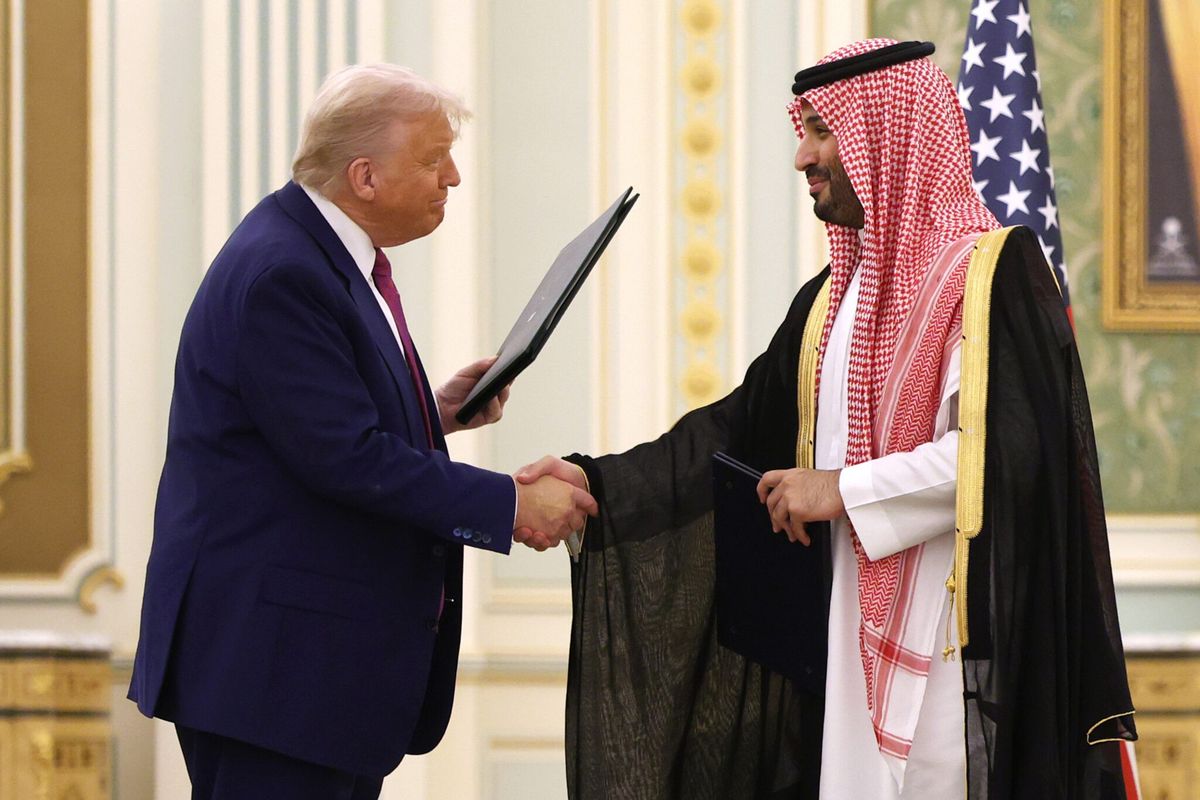SUBSCRIBER+EXCLUSIVE REPORTING — The nation's top intelligence agencies delivered a sobering threat assessment Monday, focused on spillover dangers posed by the wars in Ukraine and Gaza, and the growing influence of an axis of countries looking to reduce American power.
Presenting the 2024 Annual Threat Assessment, the Director of National Intelligence, together with leaders of the CIA, FBI and other agencies said a failure to stop Russia’s advance in Ukraine would carry implications across Europe but also in East Asia, and that Israel’s war in Gaza had raised the risks of global terrorism.
In the report and in testimony before the Senate Intelligence Committee, the agency heads warned of an "increasingly fragile world order" and increasing efforts by China, Russia and other nations to recast that order to diminish U.S. influence.
The U.S. is facing "an ambitious but anxious China, a confrontational Russia, some regional powers such as Iran, and more capable non-state actors [who] are challenging longstanding rules of the international system as well as U.S. primacy within it," the intelligence community said in its unclassified report.
The threat assessment reached beyond war and geopolitics to include cyberterrorism, climate change, and drug trafficking, but in their public testimony the officials stressed the ways in which the various threats are connected.
Director of National Intelligence Avril Haines linked the sputtering Chinese economy to China's increased global ambitions, those ambitions to China's partnership with Russia, and that partnership to a loose but growing alliance between China, Russia, North Korea and Iran. Turning to the war in Gaza, Haines warned not only of strategic concerns involving Iran and its proxies in the region, but also that the war might have a "generational impact on terrorism."
The War in Gaza - and a nexus to terrorism
While several Senators pressed the intelligence heads about terrorism threats posed by an influx of migrants at the U.S.-Mexico border, the officials said the heightened risk had more to do with the Israeli war against Hamas.
The war, the civilian death toll and a humanitarian crisis in Gaza has galvanized Arab countries in the region, the Threat Assessment report said, where there is rising "public sentiment against Israel and the United States for the death and destruction."
"While it is too early to tell, it is likely that the Gaza conflict will have a generational impact on terrorism," Haines testified to the Senate Intelligence Committee. She said that terrorist groups including al Qaeda and the Islamic State had directed supporters to attack U.S. and Israeli interests as a result of the war.
According to the report, "Media coverage of the destruction and loss of life are being amplified by active social media campaigns on all sides, roiling public reactions among neighboring countries and around the world."
While FBI Director Christopher Wray expressed concern about the "terrorism implications from potential targeting of vulnerabilities at the border," he, too, warned of rising threats from Americans inspired by Islamist groups and other foreign militants inspired by the war in Gaza.
"The threat has gone to a whole new level," Wray said.
The Dangers of a Putin victory
With a $60.1 billion aid package for Ukraine stalled in the U.S. Congress, CIA Director William Burns testified that the U.S. and its allies faced a dangerous fork in the road.
Down one path, Burns said, lies continued support for Ukraine and the likelihood that the country "can hold its own on the front lines through 2024 and into early 2025” and regain the “offensive initiative.” Among other things, Burns said that the American aid would allow Ukraine to “continue to exact costs against Russia, not only with deep penetration strikes in Crimea, but also against its Black Sea fleet.”
Even that was a far more sober assessment of the war than the agency leaders gave a year ago, when battlefield momentum was with the Ukrainians, but Burns said that the other path would lead to "a much grimmer future.”
Absent additional U.S. aid, the CIA Director said, “Ukraine would lose ground, probably significant ground.” Burns said he “seen the consequences” of a shortfall in munitions during a recent visit to Ukraine. He described a conversation with a Ukrainian official who said that in the recent loss of Avdiivka, "We ran out of ammunition, and the Russians just ran over us." “
“Without supplemental assistance in 2024, you’re going to see more Avdiivkas,” Burns testified Monday.
Beyond the battlefield implications, Burns said that failure to support Ukraine would be "a massive and historic mistake for the U.S.," with consequences felt not only across Europe but in Asia as well.
“Not only is that going to feed doubts amongst our allies and partners in the Indo-Pacific, it's going to stoke the ambition of Chinese leadership,” Burns said.
While the Ukrainians hope for a fresh infusion of American aid, Haines testified that Russia's stronger ties with China, Iran, and North Korea were boosting the Kremlin’s war effort.
“It is hard to imagine how Ukraine will be able to maintain the extremely hard-fought advances it has made against the Russians, especially given the sustained surge in Russian ammunition production and purchases from North Korea and Iran,” Haines said.
Targeting the U.S. elections
While the China-Russia partnership pays dividends for the Kremlin in Ukraine, U.S. officials said it will also lead to widespread attempts to interfere in the November presidential elections.
The report found that while motivations may differ, country by country, disinformation capabilities have grown and the overall aim is the same: to “undermine U.S. global standing, and sow domestic discord,” as the report put it.
China “may attempt to influence the U.S. elections in 2024 at some level because of its desire to sideline critics of China and magnify U.S. societal divisions,” the report found, while Russia “is contemplating how U.S. electoral outcomes in 2024 could impact Western support of Ukraine and probably will attempt to interfere in the elections in ways that best support its interests and goals.”
According to the assessment, the intelligence community is also concerned that Iran may use cyberattacks to interfere with the U.S. vote. “Iranian actors have evolved their activities and developed a new set of techniques, combining cyber and influence capabilities, that Iran could deploy during the U.S. election cycle in 2024,” the report said.
The agency chiefs testified that the rapid rise in sophistication of various artificial intelligence (AI) platforms had elevated the threat that these state actors or individuals would create or amplify disinformation in advance of elections.
"The threat of malign actors exploiting these tools and technology to undercut U.S. interests and democracy is particularly potent as voters go to the polls in more than 60 elections around the globe this year," Haines said.
Silver linings?
In a review of the threat landscape that might have been summarized as “Worry about everything,” there were a handful of reasons to hope.
Haines testified that China’s leader Xi Jinping's main focus on boosting China’s economy might lessen his willingness to sanction election interference with the U.S., given China’s profound need to attract foreign investment.
The report said that Iran and its powerful client in Lebanon, Hezbollah, remain set against sparking a wider regional war, and that the the Islamic State remains badly weakened. And as dangerous as China's new partnerships with Russia and Iran have become, officials noted that these had yet to lead to full-fledged formal alliances.
But those were thin reeds of good news. And as if the problems on earth were not enough, the threat assessment mentioned space as well. The report said that Russia would remain a key “space competitor” despite the sanctions against the country, and that China’s ambitions extended to space as well.
"China remains committed to becoming a world-class space leader and continues to demonstrate its growing prowess by deploying increasingly capable space systems and working towards ambitious scientific feats," the report found.
Read more expert-driven national security insights, perspective and analysis in The Cipher Brief because National Security is Everyone’s Business.













